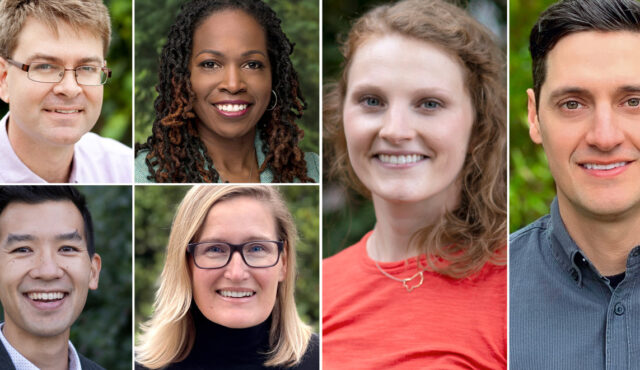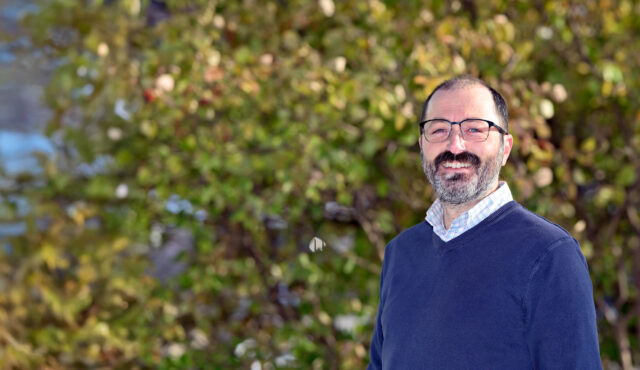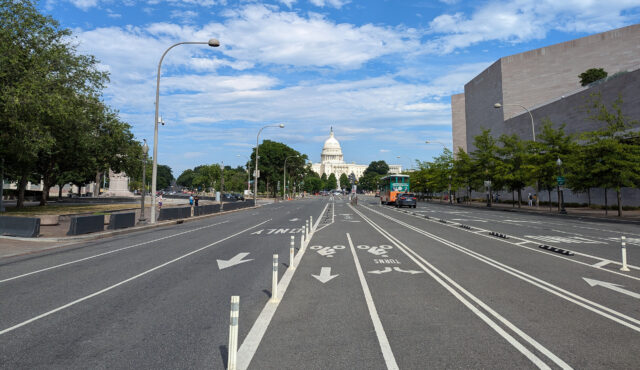As our current public health pandemic has unfolded, I’ve been thinking about my grandmother. She’s the rock and backbone of our family. She was born and raised in Charleston, SC and grew up amidst the ugly racism of the segregated South. She’s one of the strongest people I know, and in times of crisis, she’s often someone I go to for advice and comfort. Whenever I go to her for advice, she always tells me, “I’ve seen a lot, it’ll be okay. Just remember, these times show you the ugly in people, but don’t let these times show the ugly in you. Do what’s right. Be kind.”
This feels like one of those times where I’d go to her for advice. If you’re like me, it might feel like every time you look away—even momentarily—by the time you look back, everything has changed and gotten worse.
As the public health and news updates keep popping up on my phone, I’ve been thinking about how’s she doing back home in Omaha. This woman, who is so strong and has overcome so much, means everything to me. She has taken care of me and protected me, and now I want to do the same for her. She’s a cancer survivor, has several health issues, and is one of the people with underlying health concerns that we keep hearing about. In fact, many of the people in my family fall into that category. And as someone who is “young and healthy,” I’ve found myself realizing that everything going on isn’t just about me, my fears, or my ability to overcome it. It’s about having a concern and consciousness for the community that I’m in and doing my part, for the greater good.
Part of coming to this conclusion has been seeing how my employer, Toole Design, has been proactively putting practices into place to make sure that we’re putting people, health, empathy, and equity at the center of all that we’re doing, whatever the future holds. As we’ve all seen, part of “flattening the curve” is taking thoughtful and actionable steps. This means having a plan, but also being nimble enough to realize that in an ever-changing situation, that plan is likely to change. As a company we’ve also been having meetings, sending emails, and creating resources about how we can work remotely, practice social distancing, keep our workplace healthy and clean, and best communicate concerns with our colleagues and clients.
All these steps and solutions are important and critical components to doing what’s best for our company, our employees, and our communities. But these logistical actions have not overshadowed our overarching values of centering ethics, empathy, and equity during this crisis. With 17 offices and over 200 employees, we realized quickly that people in Seattle are having a very different experience than people in Los Angeles or Kansas City or Madison or Spartanburg. We have taken the time to check in with people, show empathy and grace as we try to figure this out, and struggle through dealing with something that none of us have ever experienced before. We’ve taken the time to ask questions and check in with folks—not just about what they are doing, but about how they are doing.
Even when you work with people every day, you might not know all that they are going through or what health issues they face. I shared with my team yesterday that despite all of my public speaking and extroverted work responsibilities, I struggle with crippling anxiety and depression. That means getting this constant stream of news and working from home—where I’ll largely be alone—is going to profoundly impact my mental well-being and productivity. Before sharing this, I had to know that my workplace created the environment where sharing this was okay, and where I would have partners in finding solutions that help take my personal situation into account, while still keeping a focus on not contributing to larger community health risks.
My story is just one of many across our company, across our industry, and across our communities. We don’t know what social distancing and self-quarantine could mean for people experiencing domestic violence. We don’t know who has underlying physical or mental health issues. We don’t know who is relying on their pay to help care for the older adults in their families. We don’t know who is depending on work meetings and social gatherings or school lunches for their next meal. We don’t know who can’t afford to take all of their work calls on their cell phone. We don’t know who has reliable internet and a safe place to work at home. We don’t know who doesn’t have a place to call home.
There’s so much more we may not know about those we interact with every single day. But what we do know is that we can support one another. We can have empathy for what others are feeling and experiencing. We can think beyond our own perspective in this crisis and work hard to consider and center those who are the most vulnerable and the most in need.
Over the last few days, I’ve had friends who self-identify as Asian-Pacific Islander (API) tell me stories about what they’re experiencing, and remind me of stories I’ve told them about the experiences and treatment I’ve endured as a genderqueer black person in public spaces—on planes and trains, in work settings, and elsewhere. They’ve noted that with this crisis, harassment and hate-based incidents against API has increased. Now, many of my API friends have similar stories to share as they move through their day-to-day lives. It’s something you wish no one had in common. With each of them, I’ve shared some of the things we’re doing as an organization to check on one another, care for one another, and above all, to remember that though this crisis may bring out the ugly in people, we can’t let it bring out the ugly in us. We must take care of one another. We must remember that it’s okay to not be okay. We must remember that even if we think we’re fine, there are others dealing with things we might not be able to imagine. So no matter what, wash your hands and be kind.


